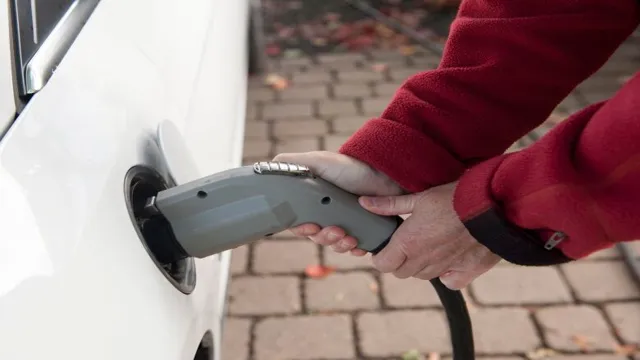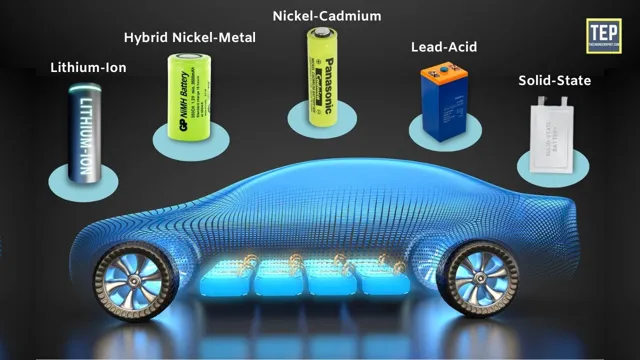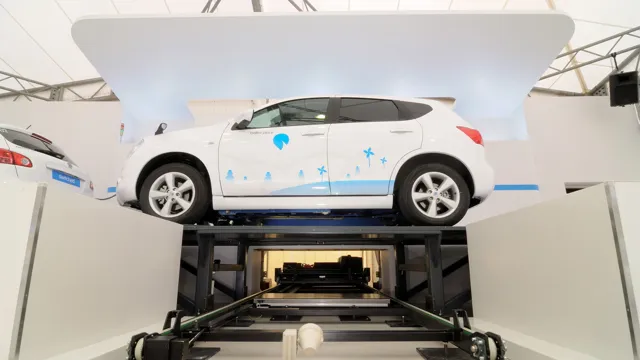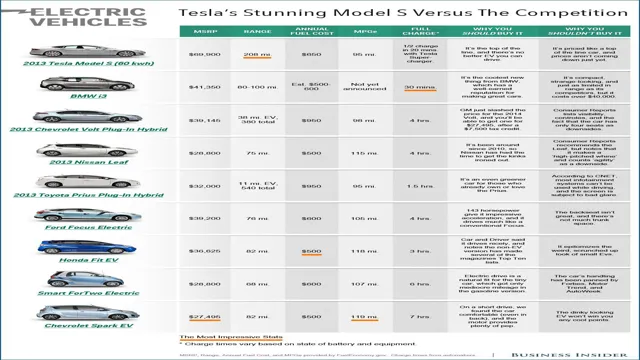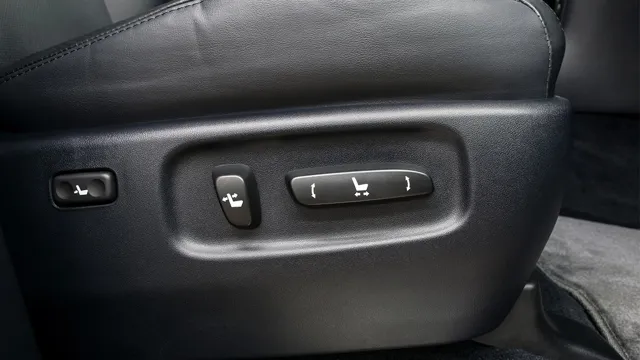The Shocking Truth About Battery Costs for Electric Cars: What You Need to Know
Electric cars have taken the world by storm, with more and more people looking to invest in eco-friendly and sustainable forms of transportation. However, one of the biggest factors holding potential buyers back is the cost of electric car batteries. While these batteries are a crucial component of electric cars, they also come with a hefty price tag.
But just how much do they cost, and what goes into determining the cost? In this blog, we’ll explore the ins and outs of electric car batteries, from the manufacturing process to the final price tag, to give you a better understanding of the cost of electric car batteries, and whether they’re worth the investment. So, if you’re considering going electric, keep reading to find out everything you need to know about the cost of electric car batteries.
Current Average Battery Costs
Battery costs for electric cars have been steadily declining over the years. In fact, the average cost of batteries has dropped by more than 85% in the last decade. This decline can be attributed to the advancements in technology and the increased production of batteries.
Currently, the average cost of a lithium-ion battery pack per kilowatt-hour (kWh) is around $137, and it is expected to drop to $100 by 202 This is a significant drop from the $1,100/kWh cost in 20 As battery costs continue to decrease, the price of electric vehicles will become more affordable for consumers, making them a more viable option for the average driver.
Additionally, this decline in battery costs will lead to increased adoption of electric vehicles and contribute to a more sustainable future. With the current trend of declining battery costs, it is only a matter of time before electric cars become the norm on the roads.
Breaking Down the Price of Electric Car Batteries
Electric car batteries have long been a topic of interest for car enthusiasts and environmentalists alike. One of the biggest concerns is the cost of these batteries, which can significantly add to the overall price of an electric car. Currently, the average cost of a lithium-ion electric car battery is around $137 per kWh of storage capacity.
This cost is expected to continue to decrease as technology improves and economies of scale are achieved. However, it’s important to note that the cost of electric car batteries can vary depending on factors such as the type of battery, the size of the battery, and the manufacturer. With that being said, it’s clear that the current cost of electric car batteries is an important consideration for buyers and manufacturers alike.
Factors that Affect the Cost of Electric Car Batteries
The current average cost of an electric car battery can vary depending on several factors, including the type and size of the battery, as well as the brand and model of the car. The cost can range from a few thousand dollars to tens of thousands of dollars. Additionally, the cost of electric car batteries has been decreasing gradually over the past few years due to advancements in technology and increased production.
For instance, the cost of lithium-ion batteries used in electric cars between 2010 and 2019 reduced by around 85%. However, the cost of electric car batteries is still higher than that of conventional internal combustion engine cars, which is why many people are still hesitant to switch to electric vehicles. Nonetheless, with the rising demand for more sustainable transportation options and government incentives, it is likely that the cost of electric car batteries will continue to drop in the coming years, making them more accessible to the masses.
Future Battery Cost Projections
Battery costs for electric cars is an important factor to consider when predicting the future of the industry. According to analysts, Batteries will continue to get cheaper as the market grows, reaching a cost of $100 per kWh by 202 This would be a significant decrease from the $1,100 per kWh in 2010! This is due to advancements in battery technology and the increase in demand as electric vehicles become more popular.
However, battery cost projections are not set in stone and there are many factors that can affect the final cost. These include factors such as raw materials, market demand, manufacturing costs, and government policies. Despite the uncertainties, the overall trend is pointing towards lower costs for batteries, making electric cars more affordable and accessible to consumers.
Industry Experts’ Predictions
Experts in the battery industry have been predicting significant cost reductions in the near future. According to a report by BloombergNEF, the cost of manufacturing lithium-ion batteries will drop by 68% by 2030. This is due to the increasing scale of battery manufacturing and the utilization of new technologies that lower costs.
The growing popularity of electric vehicles is also driving demand for cheaper and more efficient batteries. As the battery industry becomes more competitive, prices will naturally decrease. These projections are promising and raise the hope for wider adoption of electric vehicles and other battery-powered technologies.
Once these projections become a reality, electric vehicles will be more affordable to the average consumer and play a considerable role in saving our planet from the environmental damages caused by traditional vehicles.
Advancements in Battery Technology
Advancements in battery technology have resulted in significant improvements in energy storage capacity, lifespan, and charging times. However, cost remains a major barrier to wider adoption of battery-powered devices. Fortunately, battery cost projections are highly promising.
According to research by BloombergNEF, the cost of lithium-ion batteries could drop by as much as 58% by 2030. This is due to economies of scale resulting from increased demand for electric vehicles and other battery-powered devices. Additionally, advancements in battery chemistry and manufacturing techniques could further drive down costs.
As battery costs continue to decrease, we can expect to see wider adoption of battery-powered technology in various industries, leading to a cleaner and more sustainable future.
Government Incentives for Battery Research and Development
As battery technology continues to advance and gain prominence as a means of energy storage, governments worldwide have begun to incentivize research and development in this field. In the United States, for instance, the Department of Energy has established the Energy Storage Grand Challenge, which aims to accelerate the development of batteries that are more affordable, durable, and sustainable. This initiative comprises several programs, including the Battery Innovation Centers and the Lithium-Ion Battery Recycling Prize, which provide funding and resources to researchers and entrepreneurs working on battery-related projects.
This bodes well for the future of battery technology, as improving the cost-effectiveness of batteries is critical for the widespread adoption of renewable energy sources. By investing in battery research and development, governments can help drive down the cost of batteries and make them more accessible to the general public, ultimately contributing to a more sustainable and cleaner future.
How to Save on Electric Car Battery Costs
Battery costs for electric cars can be a major expense for car owners, but there are ways to save money and get the best value for your investment. One strategy is to take advantage of incentives and rebates that are offered for electric car purchases. Many governments and utility companies offer these programs to promote sustainable transportation and help reduce the cost of owning an electric car.
Another way to save on battery costs is to consider purchasing a used or refurbished battery. These can be significantly cheaper than brand new batteries, and may still have plenty of life left in them. Finally, maintaining your battery properly through regular charging and maintenance can extend its lifespan, saving you money in the long run.
With these tips and strategies, you can enjoy the benefits of driving an electric car without breaking the bank on battery costs.
Leasing and Financing Options
Leasing and financing options for electric cars can be a great way to save money and reduce your carbon footprint. However, many people are concerned about the cost of electric car batteries. Thankfully, there are several ways to save on these costs.
One option is to lease an electric car, which means you’ll only have to pay for the use of the car and not the battery. If you choose to finance an electric car, there are also incentives and rebates available, such as tax credits and discounts from car manufacturers. Additionally, some utilities offer discounts on electricity rates for electric car owners.
By taking advantage of these options, you can reduce the cost of owning an electric car and enjoy the many benefits of driving a sustainable vehicle.
Battery Swapping Programs
If you’re considering buying an electric car, you may be concerned about the cost of replacing the battery in the future. Fortunately, there are battery swapping programs that can help you save money on this expense. These programs allow you to swap out your old battery for a new one at designated locations, rather than having to purchase a brand new battery.
This can be especially helpful for those who don’t want to commit to the long-term maintenance costs of owning an electric car. By participating in a battery swapping program, you can lower the lifetime costs of your electric vehicle and enjoy the environmental benefits of driving a clean, electric car. Overall, seeking out battery swapping programs can be a wise investment for electric car owners, as it can save money on battery costs and make owning an electric car more sustainable in the long run.
Conclusion
In conclusion, battery costs for electric cars have been a point of contention for many when considering making the switch from traditional combustion engines. However, much like the battery itself, the cost is slowly but surely powering down. As advancements in technology and production efficiency are made, we are seeing more affordable options emerge, making electric cars a viable choice for a wider range of consumers.
So, don’t get charged up about high battery costs, because in the near future, they are bound to run out of juice.”
FAQs
How much do battery costs affect the price of electric cars?
Batteries can be a significant portion of the cost of an electric car, often accounting for up to one-third of the total price.
Is it possible to offset battery costs with savings on fuel and maintenance?
Yes, electric cars may cost more upfront, but can save you money over time on fuel and maintenance expenses.
Will advancements in battery technology make electric cars more affordable in the future?
It is likely that improvements in battery technology will lead to lower costs for electric cars, making them more affordable for consumers.
Are there any government incentives available to help offset battery costs for electric car buyers?
Depending on where you live, there may be government incentives available such as tax credits or rebates that can help reduce the cost of an electric car’s battery.
